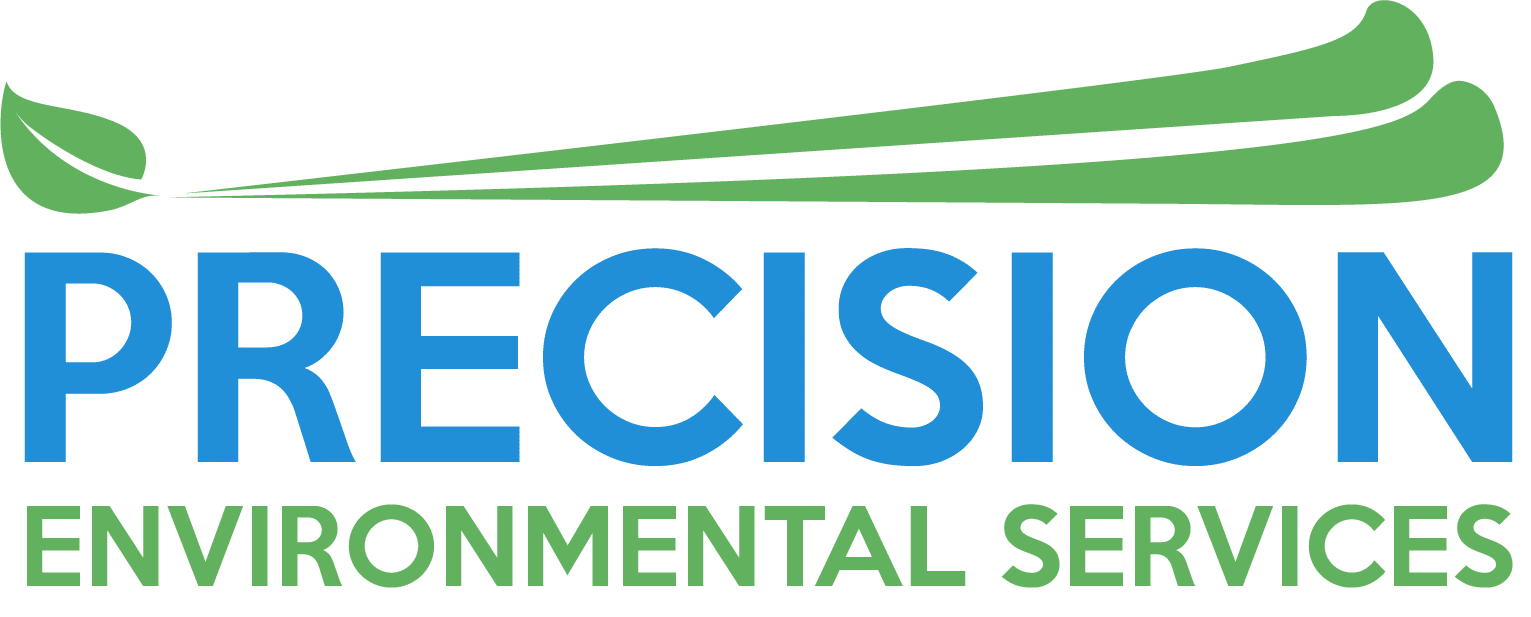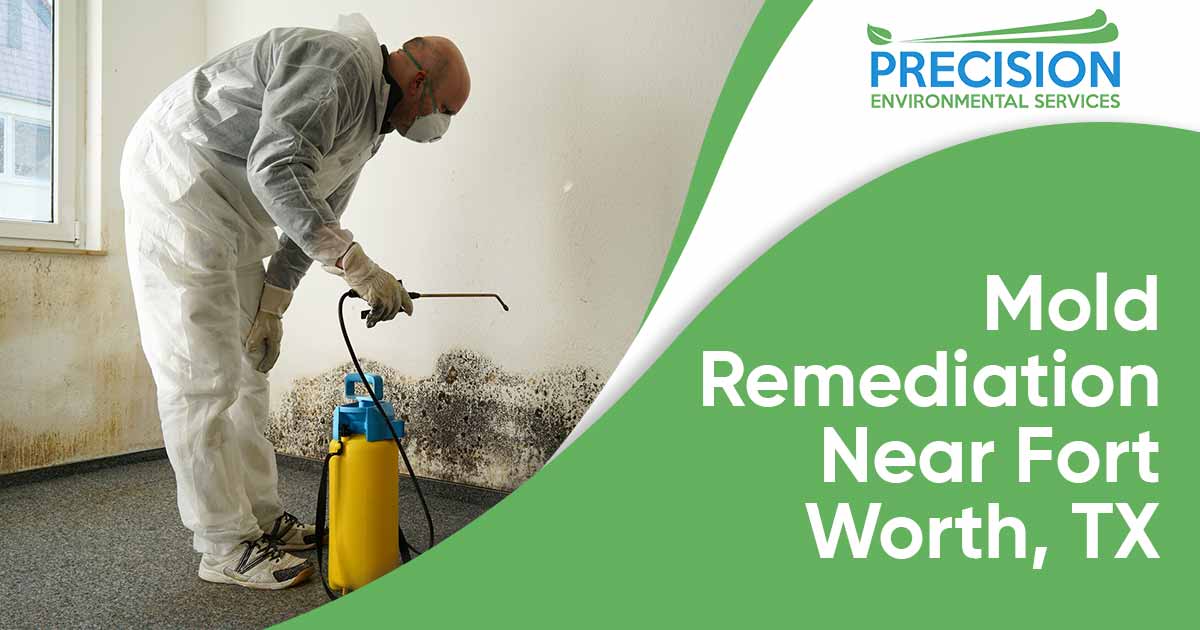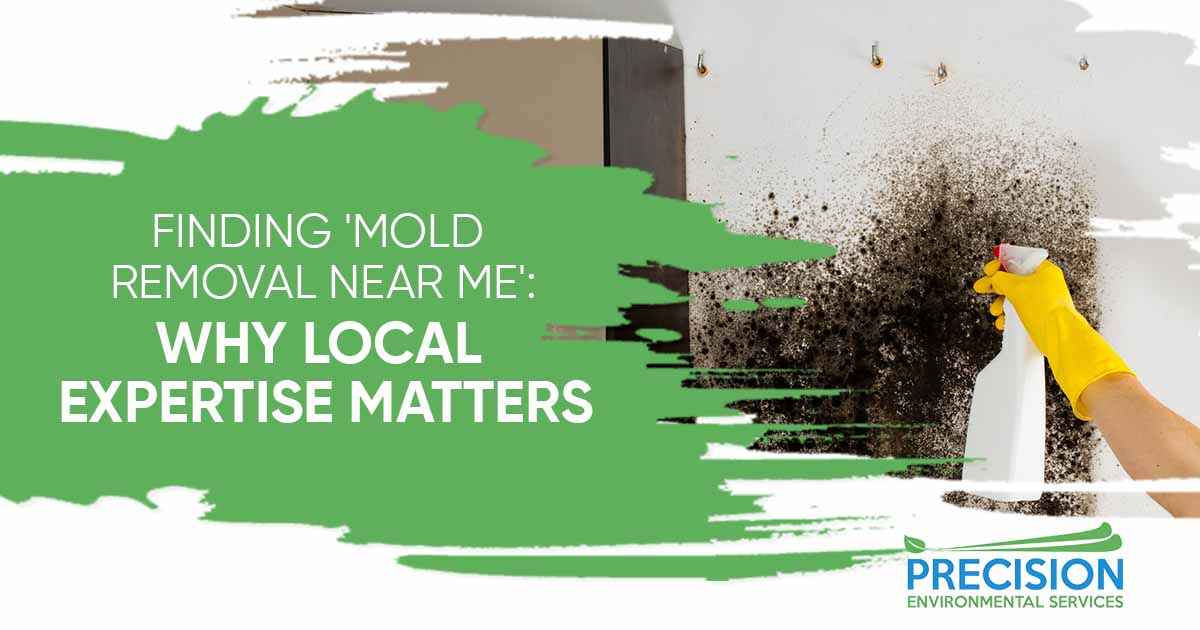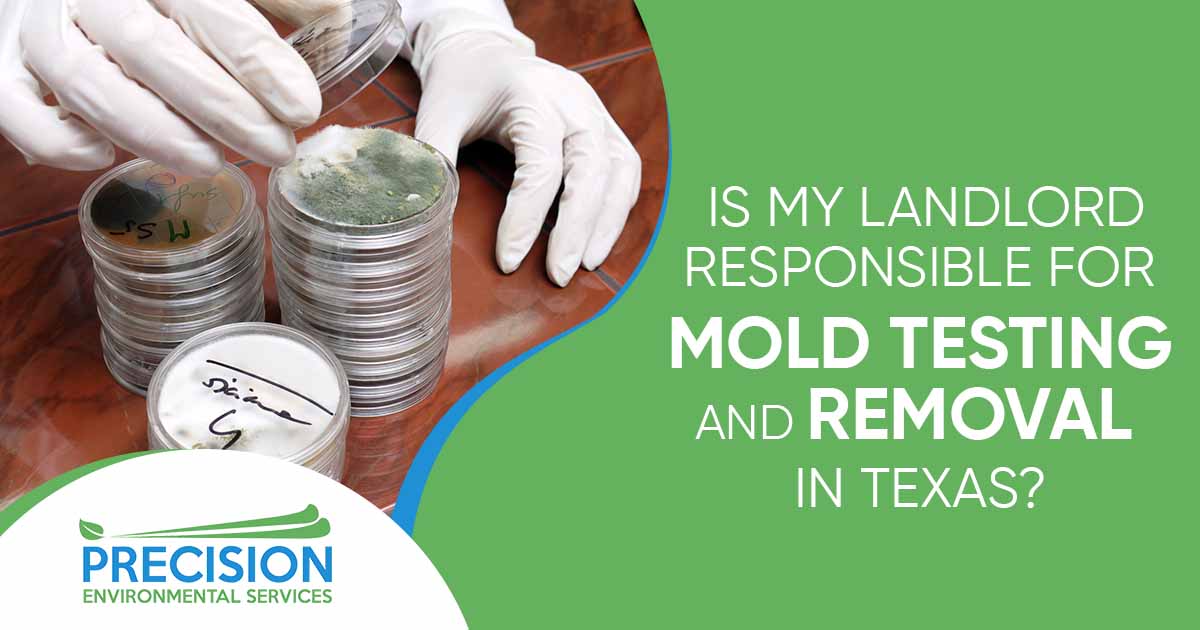Mold Removal and Remediation – Professional Mold Remediation Services
Get Estimate
Mold Remediation and Removal Services in Texas
If you’re dealing with mold in your home or office, it’s essential to act quickly. Precision Environmental Services offers expert mold removal and mold remediation services to help make your indoor environment healthier and safer. Our experienced team is dedicated to providing thorough, effective, and safe solutions that address your mold concerns.
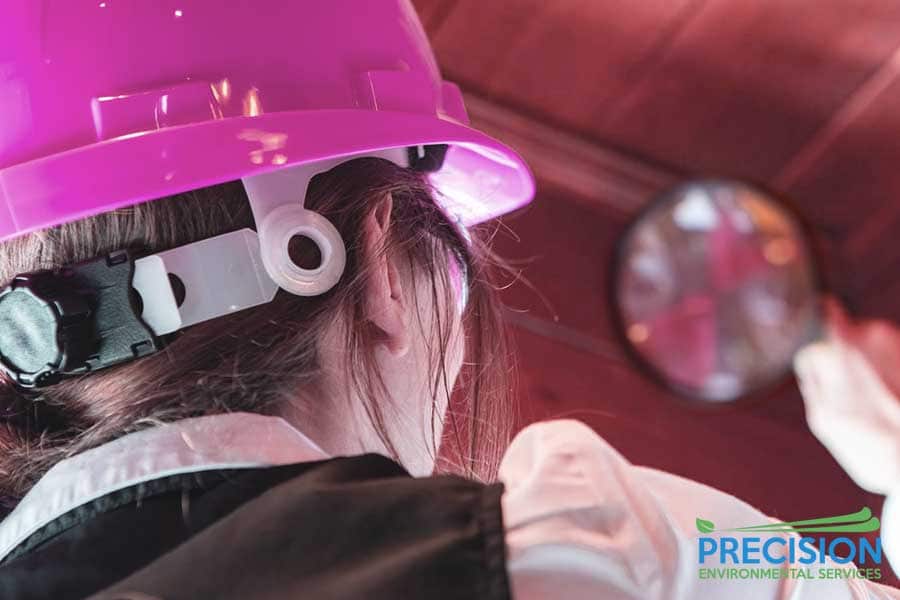
Why Choose Precision Environmental Services as Your Mold Remediation Company?
At Precision Environmental Services, we understand the dangers mold can pose to both your property and your health. With years of experience serving the greater Dallas and Fort Worth areas, we offer professional mold removal and remediation services that are tailored to your needs. Our experts are committed to delivering the highest quality service, ensuring that your property is thoroughly cleaned and restored.
We’re proud to be a local business, offering trusted, expert services with a personal touch. When you choose us, you can expect:
- Fast response times and same-day service when necessary.
- Expert technicians who are trained in the latest mold remediation techniques.
Safe, eco-friendly solutions that ensure the health of your home or office.
Step-by-Step Guide to Mold Removal & Remediation
Effective mold removal involves more than just cleaning visible mold. Our process ensures your property is fully restored, and mold is completely eliminated to prevent future problems. Here’s how we do it:
Step 1: Mold Inspection
The first step in mold removal is a thorough mold inspection. Our team uses advanced equipment to detect hidden mold, moisture levels, and areas of damage that may not be visible to the naked eye. A comprehensive inspection is crucial to understanding the extent of the problem and ensuring all mold is found and addressed.
Step 2: Containment
Once the mold is identified, we contain the area to prevent the mold from spreading to other parts of your home or building. This step is crucial for minimizing exposure and ensuring that the remediation process is efficient and effective.
Types of Molds Commonly Found in Texas Homes
Step 3: Mold Removal
Our team uses specialized tools and techniques to safely remove the mold from affected areas. Depending on the severity of the infestation, we may remove contaminated materials such as drywall or carpeting. We ensure that all mold is removed, and the area is thoroughly cleaned to prevent future growth.
Step 4: Mold Remediation and Restoration
After mold removal, we provide remediation and restoration services. This involves cleaning and sanitizing the affected areas and making necessary repairs, such as replacing damaged walls or floors. We aim to restore your property to its pre-mold condition, ensuring that it’s safe and habitable.
Health Risks of Mold Exposure
Mold isn’t just an aesthetic issue – it can cause serious health problems, especially for those with mold allergies, asthma, or compromised immune systems. Common health risks associated with mold exposure include:
- Respiratory issues: Mold spores can trigger asthma, coughing, and wheezing.
- Allergic reactions: Symptoms like sneezing, itchy eyes, and skin rashes.
- Chronic sinus infections and other upper respiratory problems.
- Long-term health risks: Prolonged exposure to mold can contribute to more severe health complications, including memory issues and lung infections.
If you notice signs of mold in your home or business, it’s important to act quickly to prevent these health risks from worsening.
Signs You Need Mold Remediation
Mold can develop in any area of your property that has excess moisture. Here are some common signs you may need mold remediation services:
- Musty or earthy odors: A persistent smell of mold often means it’s present somewhere on your property.
- Visible mold growth: This can appear as black, green, or white spots or patches, typically in damp areas.
- Water damage: Leaks from pipes, roofs, or windows can create the perfect environment for mold growth.
- Allergic reactions: If you or your family members are experiencing allergy-like symptoms, it could be a sign of mold in your home.
Why Local Mold Removal Expertise Matters
Choosing a local mold remediation expert like Precision Environmental Services is essential for several reasons:
- Knowledge of local conditions: Our team understands the environmental factors in Texas that contribute to mold growth, like humidity levels and seasonal weather changes.
- Faster response times: As a local business, we’re able to respond quickly to your needs and provide timely service to prevent further damage.
Personalized service: We take pride in offering tailored solutions for our community, ensuring that each job meets your specific needs.
Preventing Mold Growth in the Future
While mold removal is essential, prevention is key to protecting your property long-term. Here are some tips to help prevent mold growth:
- Control indoor humidity: Use dehumidifiers and air conditioners to keep moisture levels in check.
- Fix leaks promptly: Ensure that any water leaks, whether from pipes or roofs, are repaired immediately.
- Ventilate bathrooms and kitchens: Use exhaust fans to prevent moisture from building up in areas prone to mold growth.
- Regular inspections: Have your property inspected regularly for mold, especially after water damage or flooding.
Contact Precision Environmental Services for Mold Removal and Remediation
If you’re facing a mold problem in your home or business, don’t wait. Early mold remediation can help prevent health issues and property damage. Call our professional mold removal and mold remediation experts in Fort Worth and Dallas.
To learn more or to get help from our professional remediation team, contact Precision Environmental Services at (940) 597-2267 today for all your mold removal and remediation needs!
